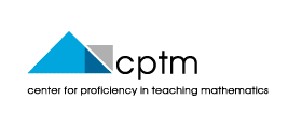



Project book
Intro describing history leading to framework. Overview of our goal and how we worked toward it
Framework --It is mostly the same as 111021 version except renaming framework and edit to reflect new name.
We may need to add a paragraph or so to explain the new name (e.g., what do we mean by “understanding”))
Chapter 3. Situations (Word Draft)
Description of what situations are. How did we create situations?
Components of a situation, with an example or two
Purposes and characteristics of good situations
Situations template
Chapter 4. Moving from situations to framework (WORD Draft)
Trace the development of the three perspectives
Start with nouns and verbs in situations
Mathematize verbs and create categories from the mathematized versions then expand to a more global level
Nouns were mapped into the proficiencies – matching with previous work
Nouns and verbs did not capture what is special about the mathematics for teaching in the context of the secondary level. Initiated at the PSU conference – attendees insisted that we had not captured the work of teaching.
Validation
Mathematicians (Tom Banchoff, Walter or Neil?, mathematicians at conferences)
Wilson-Conners study
Multiplicity of uses proposed
Chapter 5. Creating new situations: (WORD draft)
Guiding others in the development of situations
What are the different ways that situations may develop (e.g., focus on what teachers commonly do in this context and describe the mathematics they commonly apply; focus on the conceptual understanding that underpins the prompt; focus on the mathematical connections)
Start with the framework to create situations (creation could be done by teams of developers and the product could be used by mathematics departments and by mathematics educators)
Possible use by mathematics departments and by mathematics educators (would serve not only to help mathematicians develop MUST but also to help connect school mathematics with collegiate mathematics)
(creation could be done by (graduate) students in mathematics or mathematics education courses)
(graduate) students who have taught could recall prompts from their teaching
Chapter 6. Summary of uses (Word)
Uses of situations refer to NCSM guide but focus here on different audiences (preservice, inservice, mathematicians, research) and general ways they might use situations.
Suggested uses from the GA conference
Uses of situations and framework
Chapter 7 to (7+k). Situations (include list of contributors)
Edit titles to reflect the mathematical content (e.g., ladder, parametric drawings)
Chapter (7+k+1). Next steps: What can follow?
Some ideas (there are others)
Looking ahead, using this material
Different uses, including the study of instructional practices
Other approaches to MUST
Consolidating approaches to MUST
Adjudicating MKT egg and MUST
Measuring MUST